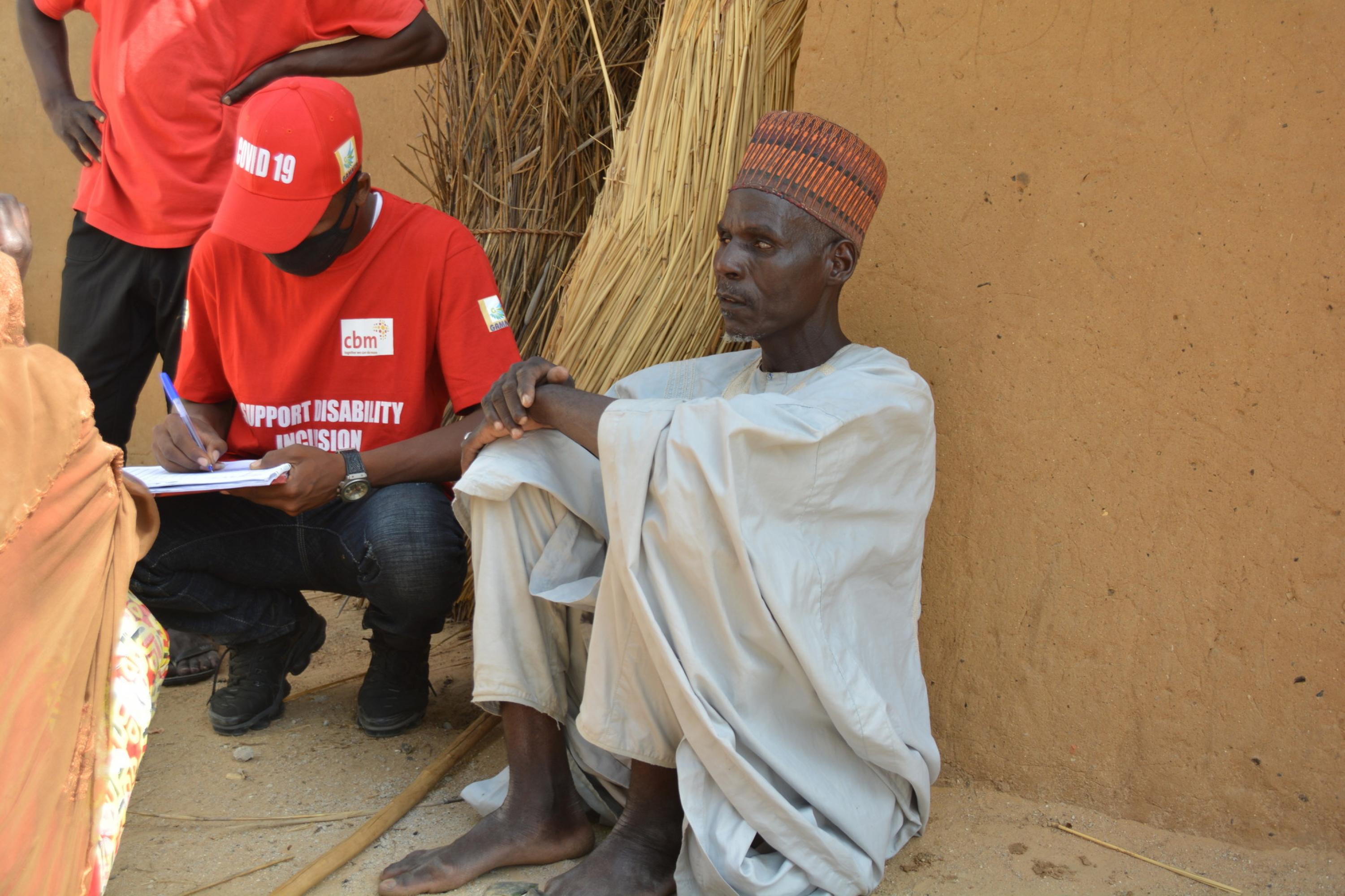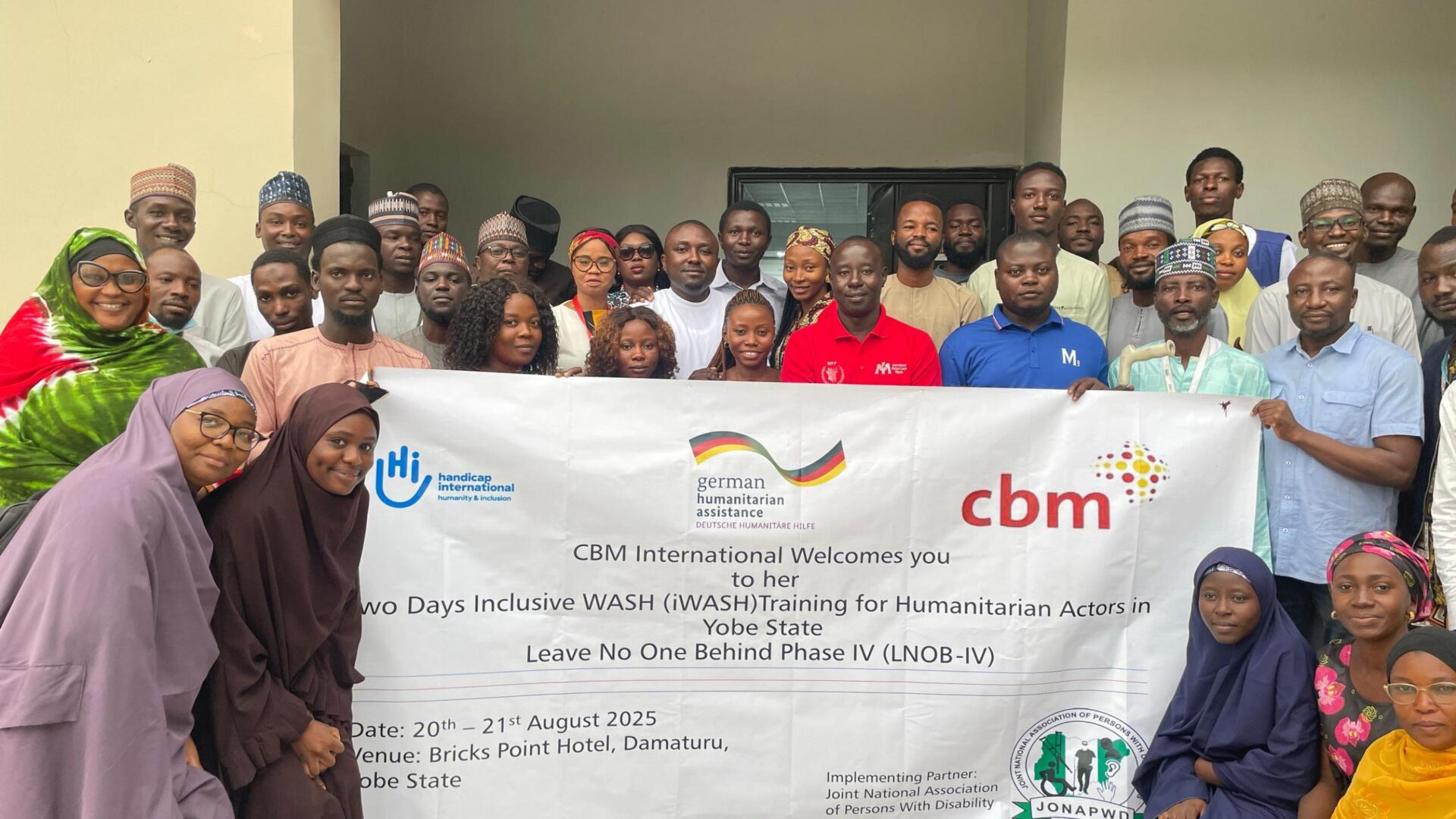Nigeria is bordered by Benin to the west, Niger to the north, Chad to the northeast, and Cameroon to the east. With a total population of about 211 Mio people, Nigeria is one of the most populous countries in Africa. Although Nigeria has one of the largest economies in Africa, high levels of poverty and lack of basic healthcare affect millions of people.
In this context, CBM has played a significant role in humanitarian and development efforts. Active in Nigeria since 1968, CBM collaborates with local partners across 16 states, with a particular focus on the North-East. From 2019 to 2024, CBM invested approximately €20 million in long-term development, recovery, and humanitarian projects, dedicating about a quarter of its annual budget to humanitarian action and transitional development aid.
CBM’s interventions have addressed crises such as the Lake Chad conflict in the northeast, pastoralist-farmer clashes in central Nigeria, and the influx of refugees from Cameroon’s Anglophone Crisis. Through the 3rd phase of the LNOB project, CBM has, together with local OPD and NGO partners and in collaboration with UN OCHA, successfully pushed for the establishment of an interagency Disability Working Group for Northeast Nigeria. Furthermore, it has supported various capacity building initiatives around disability inclusion in humanitarian action for NGO and UN partners in the region.



